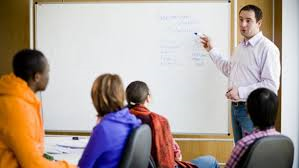Work content analysis of thinking and research in terms of attention to teaching sixth grade lippmann thinking and evaluation of teachers' expert
Keywords:
Thought and Research, Philosophy for Children, Lippmann, a content analysisAbstract
This study used content analysis of thinking and research book published six years of elementary school 2013-2014 attention to education in terms of Lippmann and evaluation of teachers' thinking, experts is. Content analysis and quantitative research methods in the first part of the Czech list of categories that includes nine categories of teaching thinking (asking questions, evaluate evidence and testimony, reasoning, interpreting, being collective, judgment, analysis, reasonableness, clearly having ones). The second part includes a qualitative study of in-service teachers were interviewed. The community of thought and research books and teachers in service courses province, respectively. In this book, thinking and research and in-service teachers, 10 women were selected as samples. The total volume of analysis, we identified. categories with 1 being the highest and logical issues related to training frequency of the least frequent contemplation of the book. The teacher in service courses are based on the belief that thinking and research book, a book is thinking but better implementation of effective education in schools requires that provide Pre necessity Teacher's Guide, such as the appropriate educational films continuity in-services courses for teachers and ... know.References
Ali Pur, V., 2003. Evaluate the appropriateness of the school's social studies book content with critical thinking skills, MS Thesis. Tehran Univ. Teacher Educat. Fisher, R., 2001. Philosophy in Primary Schools: fostering thinking skills and literacy, Brunel University. Fisher, R., 2003. Training And Thinking. Interpretation of Blaze See it Zadeh. Ahvaz questions. Garratt, P., Piper, H., 2011. Citizenship education and philosophical inquiry: Putting thinking back into practice. J. Permiss. nav DOI: 10.1177/1746197911432592. Gruioniu, O., 2012. The philosophy for Children, an ideal tool to stimulate the thinking skills. University of Pitesti, Romania. Gsk Moghimi, A., 2013. Read and write text book content analysis and the heavens gave primary attention to the perspective of teaching philosophy to children. Use it A master. Ahwaz martyr Chamran University. Hashemi, S.M., 2006. Investigate the role of critical thinking in the book's content Basic Training The fifth term Elementary. Finish Letter the master. Shiraz: Shiraz University. Hatami, H., Karimi, R., Joseph, Z., 2011. Study the effect of increasing EI program philosophy for children in school girl student martyrs of Tehran. Two J. Child think., Page 21 -35. Kennedy, D., base, J., White., d the d., 2011. Small philosophers. Translated by John Ghaedi. Tehran: ayzh Maleki, H., 2006. The lesson plan (Guide). Tehran: School.
Marashi, S.M., 2008. Teaching Children Philosophy, a new approach in the curriculum. Ahwaz Education,
martyr Chamran University Press. Pp. 283 -30.
Marashi, S.M., 2010. Research community dynamics in philosophy education to children, The Journal of
Culture., No. 22, pp. 149-109.
Marashi, S.M., Rahimi, A., language Hojjatallah, M., 2008. Feasibility study of teaching philosophy to
children in the primary school curriculum. Quarterly J. Educat. Innovat., No. 28, pp. 8-28
Marie, F., Emmanuelle, A., 2011. Educational Philosophy and Theory, Vol. 43, No. 5, p416-435.
Myers, chat., 1986. Teach critical thinking. Translation of the abyli Khodayar (2007).
Nagy, S., 2010. Understanding of modern Islamic education (Recovery of Philosophy for Children program
components). Quarterly of Culturepp. 177 -214.
Nagy, S.,1390. Explore philosophical Kids (Interview with the new revolutionary pioneers in education
Education). Tehran. Inst. Humanit. Cultur. Stud.
Pilgerstorfer, M., Albert, D., Camhy, D.G., 2006. Cosiderations on Personalized Training in Philosophy for
Children.
Ramezani, M., 2011. Check Philosophy for children in line with the dimensions of mental Two J. Child
think., No. 1, pp. 21 -35.
Rare, A., B., Tajali Nia, A., Shariatmadari, A., Seif Naraghi, M., 2013. Examine the impact of the program
philosophy for children in foster creativity junior high school students in district of Tehran. J. Child
think., Page 91 -117.
Rasthchi, M., 2011. Literary fiction and its role in the growth of think. Child Think. J., Q 1, S 2, pp. 23 -37.
Safai Moghaddam, M., 2010. Analysis of "slow movement" and what "philosophy for children movement"
holds. Culture magaz., no. 22, Spring 2010, p. 59 -82
Scholar, M., Gholamhosseini, A., 2013. Thought Work and sixth-grade book research. Tehran: Office
printing and distribution of textbooks.
Seif Naraghi, M., ghobadiyan, C., Rare, B., Shariatmadari, A., 2012. Community Effective method for
research in the social development of children. J. Child think., No. 2, pp. 37 -58
Shabani, H., 2012. Teaching methods courses c. (Skills Training Thinking and strategies). Tehran.
Tarahhomi Ardekani, M., Hashem., 2012. Assess the status of critical components Matthew Lipman in the
content of school mathematics textbooks. Use it a Masters. Ahwaz martyr Chamran University.
Vansieleghem, N., 2005b. Philosophy for Children as the Wind of Thinking. J. Philosophy Educat., Vol. 39,
No.

Published
How to Cite
Issue
Section
Copyright (c) 2020 Abdlmajid Mahigir, Mohammad Jafar Rezaei, Ayub Zareei, Farshad Mahigir, Masood Keshavarz

This work is licensed under a Creative Commons Attribution-NonCommercial-NoDerivatives 4.0 International License.



